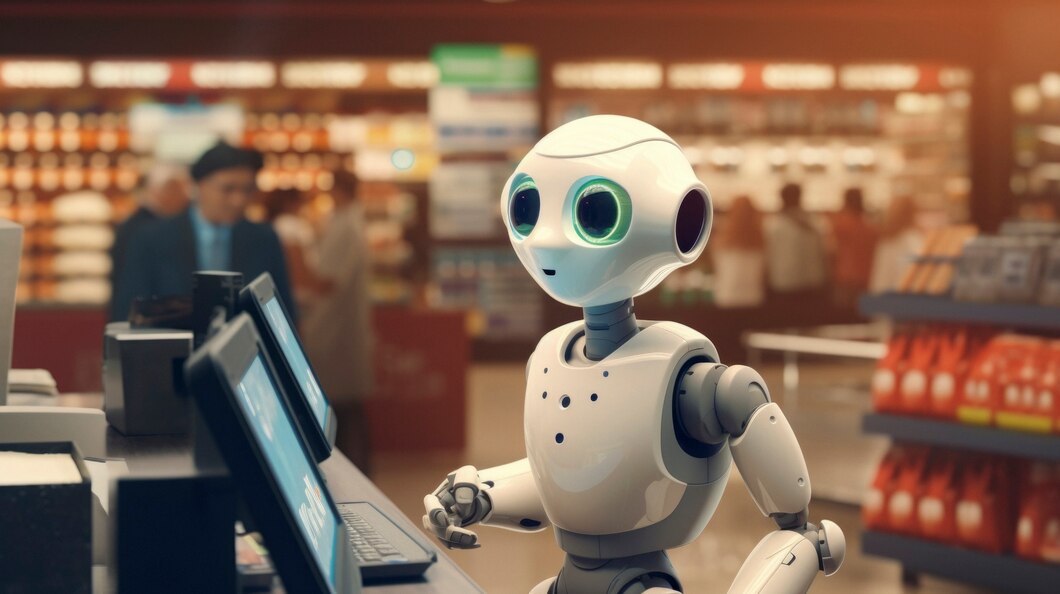
Why you need demand forecasting solutions using machine learning?
11 March 2020
Product Recommendations Using HRNN
1 April 2020
Tags

Published by
BluePi
Data-Driven Business Transformation
Are you ready for AI models impact on retail sales?
AI models impact on retail sales
Modern industrial sales and supply chains are complex. The amount of a product or service that a company can sell or produce over a given time frame is often negatively impacted by operational bottlenecks that might occur due to a number of reasons.
In a Bain survey, 88% of participants say their organization supply chains, operations, and sales will feel the impact of artificial intelligence over the next five years.
But is your organization ready to adopt artificial intelligence supply chain and sales?
Supply chain and sales - The current scenario
Manufacturers across different industries are losing trillions of dollars in productivity each year. These are caused by persistent operational bottlenecks that often result in 40% of the industrial output not reaching the target market at the right time.
The bottlenecks occur due to different reasons and vary also in terms of the complexity, resulting in the need for different solutions in a timely manner.
Take for instance, on the shop floor. Any equipment downtime can impact the processing speed of a product or service – in most cases, slowing it down. This directly impacts the supply chain and the commitment that can be made on the sales front of the organization, leading to losses despite market demand.
Now monitoring equipment health, in this case, can help you prevent the occurrence of such situations. But some bottlenecks can occur abruptly, limiting your organization’s supply chain and decision-making capabilities for adequate sales.
Thus, the first step to maximize the efficiency of the supply chain and boost sales is to be able to process data across the system. Manually pulling in data from different operators and providers across the supply chain only leads to manual errors and loss of critical information, leading to delayed decisions or ones leading to more losses.
This is where artificial intelligence supply chain comes in.
Learning from data using artificial intelligence supply chain
Manufacturers across different industries are losing trillions of dollars in productivity each year. These are caused by persistent operational bottlenecks that often result in 40% of the industrial output not reaching the target market at the right time.
The bottlenecks occur due to different reasons and vary also in terms of the complexity, resulting in the need for different solutions in a timely manner.
Take for instance, on the shop floor. Any equipment downtime can impact the processing speed of a product or service – in most cases, slowing it down. This directly impacts the supply chain and the commitment that can be made on the sales front of the organization, leading to losses despite market demand.
Now monitoring equipment health, in this case, can help you prevent the occurrence of such situations. But some bottlenecks can occur abruptly, limiting your organization’s supply chain and decision-making capabilities for adequate sales.
Thus, the first step to maximize the efficiency of the supply chain and boost sales is to be able to process data across the system. Manually pulling in data from different operators and providers across the supply chain only leads to manual errors and loss of critical information, leading to delayed decisions or ones leading to more losses.
This is where artificial intelligence supply chain comes in.
Are organizations ready for the artificial intelligence supply chain model?
A survey of more than 100 cross-sector global supply chain leaders by PA consulting stated that early adopters of technology such as artificial intelligence were able to cut their cost of operations by up to 15%.
While most manufacturers across industries have taken their initial steps to implement a digital transformation, the numbers are still on the lower side. Not every organization is ready for the artificial intelligence supply chain model for better management and sales.
The only way to know if your organization is ready to adopt the new model is to first understand the benefits of artificial intelligence supply chain and its impact on business market capture and sales. It’s important for the organization to assess its current supply chain performance and assess their state of digital readiness before heavily investing in new technologies, and then research solutions that are best suited to meet their needs.
For instance, BluePi’s supply chain optimization solutions are driven by algorithms using artificial intelligence that are perfected for different retail formats like multi-format, grocery, apparel, and others. It has helped retail organizations add a minimum of 5% to their bottom line by being able to optimize their supply chain and plan sales using data, making it a profitable addition to most organizational processes. You can learn more about it here.
Not sure if artificial intelligence can improve your supply chain optimization and impact your sales positively?
Let us help you assess your state of digital readiness for the artificial intelligence supply chain model and how it can help you improve sales. Contact us today


































